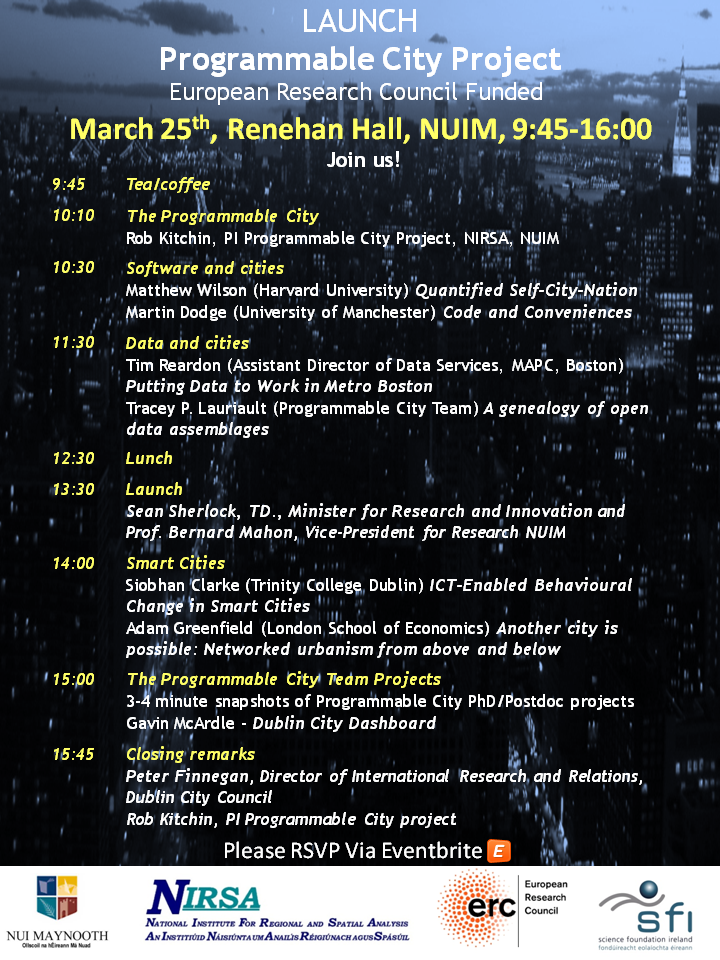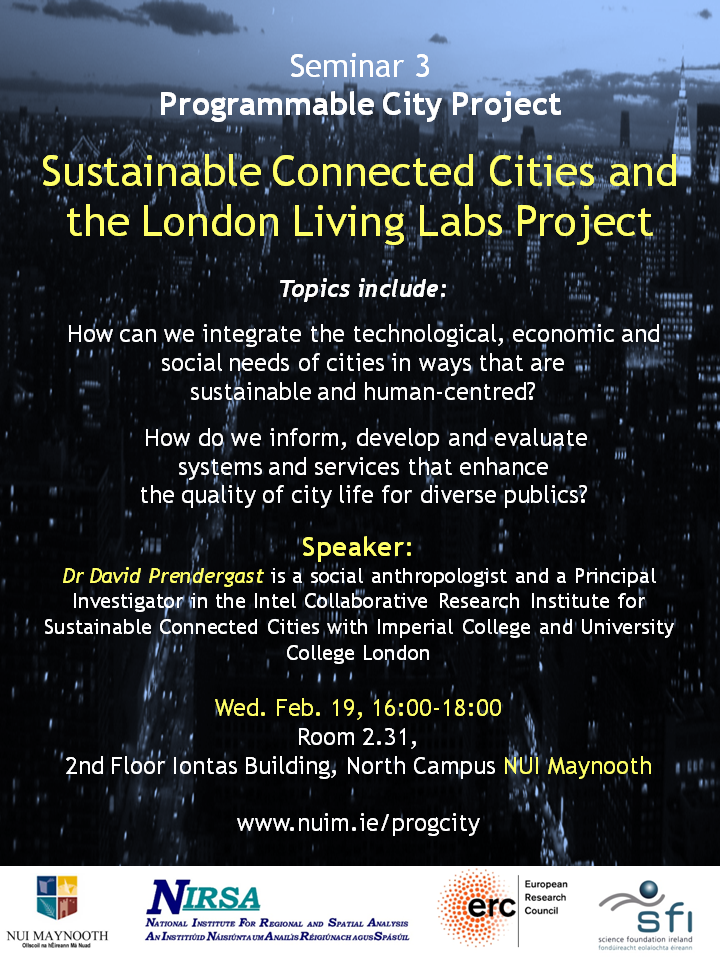The Programmable City project will be officially launched on the 25th March 2014, with an all day event in Renehan Hall in NUI Maynooth. There’s a really great line-up of speakers, so hopefully you’ll consider joining us to learn more about the project and about smart cities, ubiquitous computing, big data and how software is reshaping urban life. Complete bios and abstracts are availble here.
Be sure to RSVP via EventBrite!
9:45: Tea/coffee
10.10-10.30: The Programmable City
Rob Kitchin, PI Programmable City Project, NIRSA, NUIM
10.30-11.30: Software and Cities
Matthew Wilson (Harvard University) Quantified Self-City-Nation
Martin Dodge (University of Manchester) Code and Conveniences
11.30-12.30: Data and Cities
Tim Reardon (Assistant Director of Data Services, MAPC, Boston) Putting Data to Work in Metro Boston
Tracey P. Lauriault (Programmable City team) A Genealogy of Open Data Assemblages
12.30-13.30: Lunch
13.30-14.00: Launch
Sean Sherlock, TD., Minister for Research and Innovation and Prof. Bernard Mahon, Vice-President for Research NUIM
14.00-15.00 Smart Cities
Siobhan Clarke (Trinity College Dublin) ICT-Enabled Behavioural Change in Smart Cities
Adam Greenfield (London School of Economics) Another City is Possible: Networked Urbanism from Above and Below
15.00-15.45: The Programmable City project
Snapshots of Programmable City PhD/Postdoc projects
Gavin McArdle – Dublin City Dashboard
15.45-16.00 Closing remarks
Peter Finnegan, Director of International Research and Relations, Dublin City Council
Rob Kitchin, PI Programmable City project
![]() Be sure to RSVP via EventBrite!
Be sure to RSVP via EventBrite!
Parking information can be found at http://progcity.maynoothuniversity.ie/about/nui-maynooth/.




